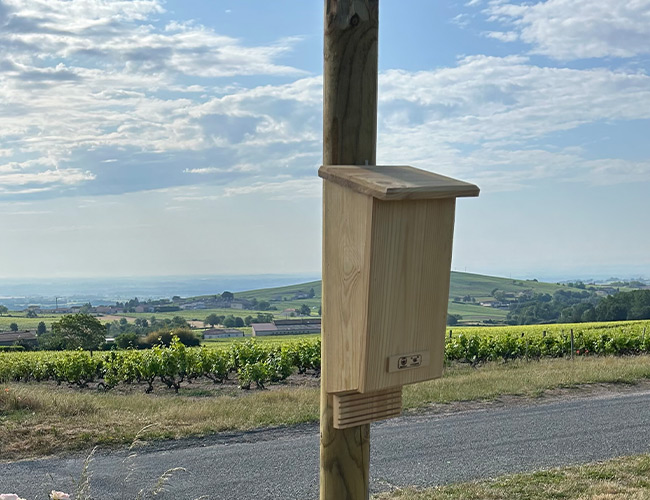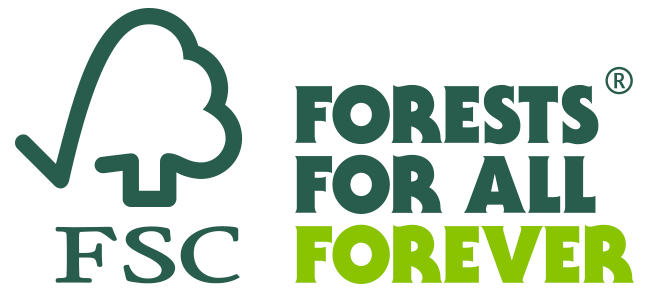Impact
In addition to the transition to certified organic farming, dry farming and more, I am taking incremental steps, every year, to reduce the carbon impact of my farming and winemaking.
Whenever possible I farm my vineyards with a dedicated, hard-working crew and strong-backed draft horses, not diesel-powered tractors. My vineyards are pruned and harvested by hand, not machine, and I employ a low-till ground cover philosophy, meaning I incorporate diverse cover crops between vine rows. Each hectare I farm sequesters over one ton of carbon per year, every year.
Bat boxes and insect “hotels” are in place to enhance biological diversity. I also practice several biodynamic farming principles.

Bat boxes around the vineyard encourages nesting and helps naturally control vineyard pests

I ferment my organically farmed Morgon and Fleurie grapes naturally in concrete or glass, using no electricity to heat or chill the lots. I punch down by hand, rather than via an electric plunger. You are seeing the lighter weight bottles I have chosen which are made from a high percentage of post-consumer recycled glass. Lighter weight glass requires less energy to manufacture - and transport. I am moving away from carbon-heavy tin capsules and aluminum screwcaps. (Aluminum screwcaps can be recycled but few communities have the infrastructure to consistently do so). On some wines I don’t use any capsule at all - so they are 100% plastic-free.
My natural corks come from sustainable, heritage cork oak forests which are certified by the Forest Stewardship Council (FSC). These forests sequester tons of carbon per hectare, every year. Ernst & Young, in their 2019 Amorim-sponsored study determined that the carbon captured by one natural cork equals the carbon used to produce one glass bottle. While I am often skeptical of sponsored research, E&Y doesn’t typically mess around, so it’s encouraging.
Furthermore, my labels and cardboard boxes are post-consumer recycled FSC-certified paper (or renewable cotton) and are printed with compostable inks.
Last, for those who buy my wines directly, you already know I use recycled cardboard shippers and never use that most evil of products; styrofoam.
Baby steps, yes, but I am making progress.